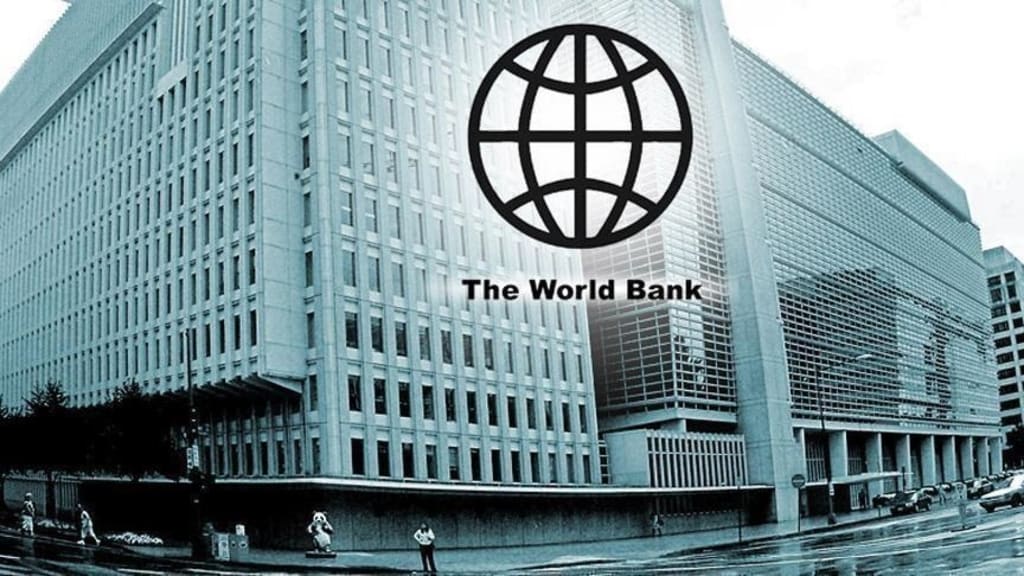The World Bank: Bridging the Gap for Global Development
The primary mission of the World Bank is to alleviate poverty and promote sustainable economic development in developing countries.

The World Bank, established in 1944, is a prominent international financial institution that plays a crucial role in fostering global development. Composed of two institutions, the International Bank for Reconstruction and Development (IBRD) and the International Development Association (IDA), the World Bank supports low- and middle-income countries by providing financial and technical assistance for a wide range of projects and initiatives.
The primary mission of the World Bank is to alleviate poverty and promote sustainable economic development in developing countries. It operates in more than 150 countries and focuses on areas such as infrastructure development, agriculture, health and education, governance, and environmental sustainability. The World Bank aims to achieve measurable results in these areas by leveraging financial resources, technical expertise, and global partnerships.
One of the core functions of the World Bank is to provide financial assistance to developing countries through loans, grants, and credits. The IBRD, often referred to as the "World Bank" itself, provides loans to middle-income and creditworthy low-income countries to finance projects that promote economic development, such as infrastructure projects, energy initiatives, and private sector development. On the other hand, the IDA offers low-interest loans and grants to the poorest countries to support social and economic development programs, with a focus on poverty reduction, education, health, and other basic services.
Apart from financial assistance, the World Bank also provides technical expertise and policy advice to help countries implement their development strategies effectively. This includes support for governance and institutional reforms, capacity building, and knowledge sharing to promote sustainable development practices. The World Bank also collaborates with other stakeholders, including governments, civil society organizations, and the private sector, to mobilize resources and knowledge to address global development challenges collectively.
In recent years, the World Bank has prioritized several critical areas to achieve its goals. These include investing in human capital, addressing climate change and environmental sustainability, promoting gender equality and social inclusion, and fostering private sector development. The World Bank recognizes that investments in human capital, including health, education, and social protection, are essential for building resilient societies and achieving sustainable development. Climate change and environmental sustainability are also critical areas of focus, as the World Bank works towards supporting countries in mitigating the impacts of climate change, promoting clean energy, and protecting natural resources.
Furthermore, the World Bank emphasizes the importance of gender equality and social inclusion in development efforts. It recognizes that empowering women and vulnerable groups is not only a matter of social justice but also a crucial driver of economic growth and development. The World Bank aims to promote gender equality in its operations and support initiatives that address discrimination, violence, and social exclusion.
Private sector development is another priority for the World Bank, as it recognizes that a vibrant private sector is vital for creating jobs, promoting innovation, and driving economic growth. The World Bank provides support to private sector initiatives, including financing for small and medium-sized enterprises, improving business climates, and fostering entrepreneurship, to promote economic opportunities and development.
Despite its significant contributions to global development, the World Bank also faces challenges and criticisms. Some critics argue that the World Bank's policies and projects have negative social and environmental impacts, including forced displacement of communities, environmental degradation, and lack of transparency and accountability. Others raise concerns about the conditionality attached to loans and the potential for debt burden on developing countries.
In response to these challenges, the World Bank has undertaken measures to enhance transparency, accountability, and sustainability in its operations. It has established safeguards and social and environmental standards to ensure that projects financed by the bank are environmentally and socially sustainable. The World Bank has also implemented measures to engage with stakeholders, including affected communities, civil society organizations, and indigenous peoples, to ensure that their voices are heard in the decision-making process.
In conclusion, the World Bank plays a crucial role in supporting global development through its financial assistance, technical expertise, and policy advice. It focuses on key areas such as infrastructure development, human capital investment, climate change mitigation, gender equality, social inclusion, and private sector development. While facing challenges and criticisms, the World Bank continues to evolve and adapt its operations to ensure transparency, accountability, and sustainability. As a global institution, the World Bank remains committed to its mission of alleviating poverty and promoting sustainable economic development in developing countries, and bridging the gap for a more equitable and prosperous world.





Comments
There are no comments for this story
Be the first to respond and start the conversation.